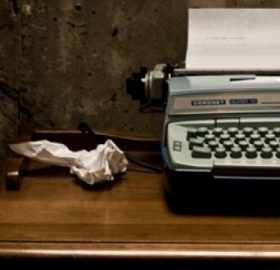I am particularly pleased to have my short story ‘Runner’ in The Honest Ulsterman, online on Thursday June 28th. Launched 40 years ago as ‘A Handbook for Revolution’, it has showcased world-class writers such as Seamus Heaney, Medbh McGuckian, Michael Longley, Louis McNeice – an amazing list.
Time to pay a personal tribute.I recall 1968 as a year of unmistakeable change. I was a child. Children are sensitive, in their own way, to changes of atmosphere. I began grammar school in 1967, aged 10. I had a wonderful English teacher, Mrs Cronin, who took it for granted that we were not only readers but writers. We wrote constantly. We acted our set texts. She took us to Queen’s University where we heard Seamus Heaney read in about 1972 and I can see, in retrospect, that she gave us something that many pupils never receive – she made it second nature for us to see ourselves as people who could write and who could mix with writers and whose lives were rich to be written.
By giving us poems to read and analyse in class which were, I later realised, hot-off-the-press, written by people who lived not far from us and who wrote about our society and circumstances, she produced students who did not experience a stultifying gap between the professional writer and their own potential. What those respected writers were, we could be, if we worked and took the craft seriously. They were writing for us and about us, we felt. ‘Literature’ was something alive and growing. It was hope. There were people around us creating the world anew. There was a narrative other than that of violence.
I stress this was not conveyed in an overt way. It was more about the creation of an alternative atmosphere, provided by literature.
If The Honest Ulsterman set out to be a Handbook for Revolution I think it is possible we were being trained to be revolutionaries, in the sense of being encouraged, in the field of literature, to engage critically with our lives, to question the status quo, to shape our experience by our own lights, enriched by local culture and by the world’s.
Our place in the world – every young person seeks that. Literature, locally published, was very important as a cultural anchor in those very uncertain times of forty years ago but also as a pennant flying high whatever the weather.
I owe a personal debt of thanks to The Honest Ulsterman and to all who have sailed, and will sail, in her.
